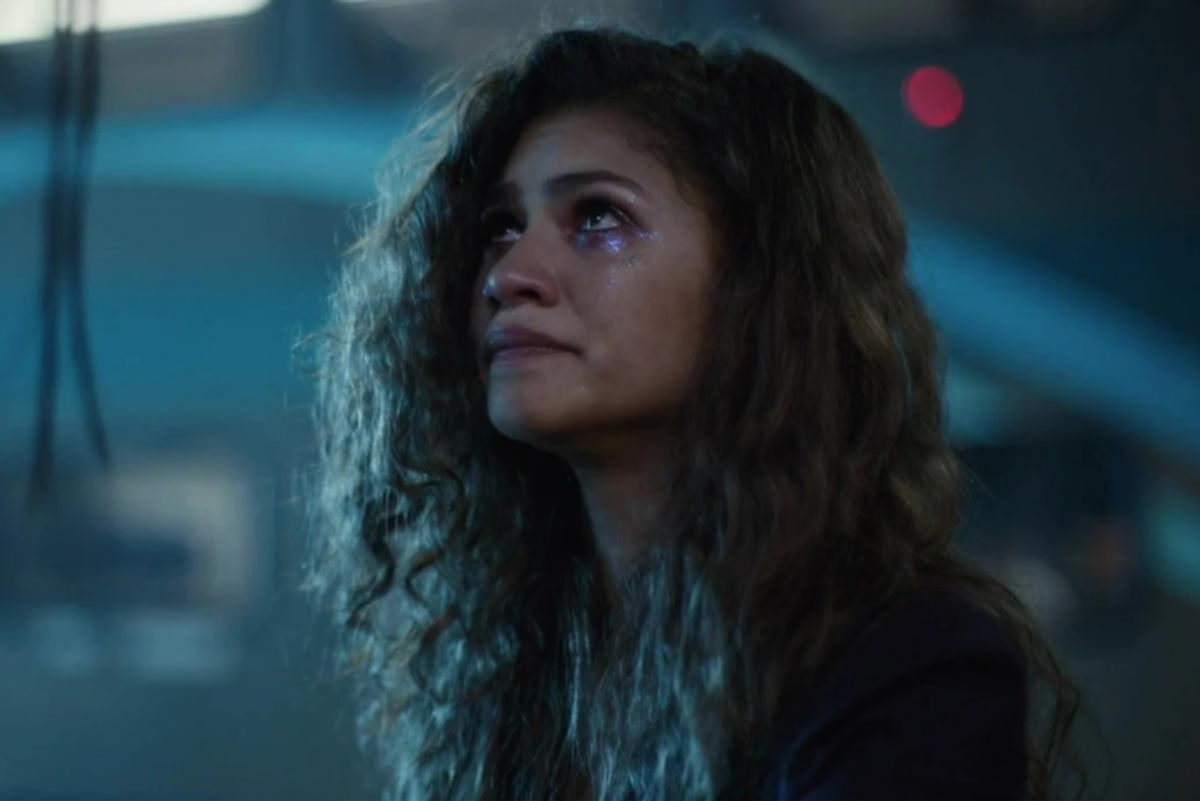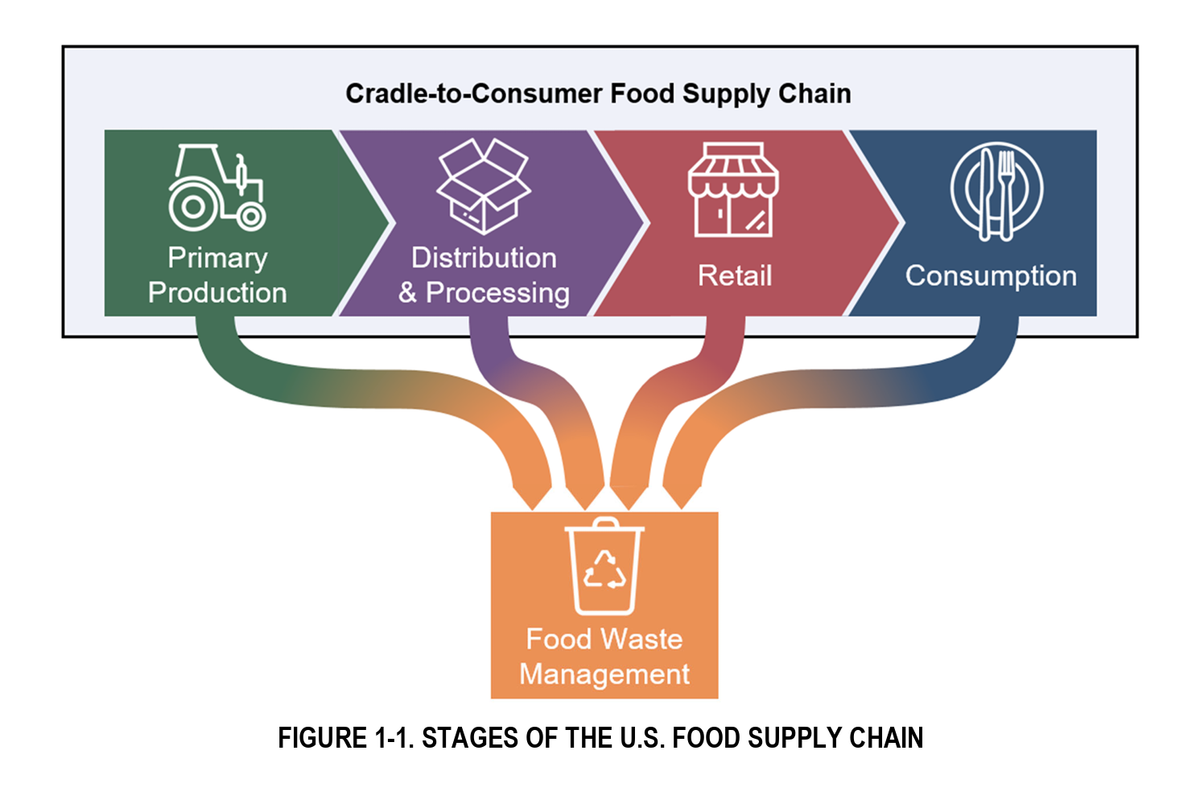
Euphoria's Rue, played by Zendaya.
"Euphoria" is without question a heavy show. The teenagers at Euphoria High deal with abusive relationships, drug addiction, mental illness and the dark side of sexuality. There’s not one episode that feels comfortable. When I think of “easy viewing,” this is certainly not it.
The show has received a lot of backlash for its content, with critics claiming that it glorifies and glamorizes toxic behavior. Following "Euphoria"’s second season, D.A.R.E. issued a statement to TMZ saying "It is unfortunate that HBO, social media, television program reviewers, and paid advertising have chosen to refer to the show as 'groundbreaking,' rather than recognizing the potential negative consequences on school age children who today face unparalleled risks and mental health challenges.”
Though I understand the concern, I do not agree. I think "Euphoria," and shows like it, can be vital viewing. They’re painful, intense and hard to watch. And that’s exactly why we need them, if we ever aspire to strengthen our compassion for those dealing with issues that often lurk under the surface.
As the central character Rue (played by Zendaya) struggles to gain control of her life, we feel her loneliness, her yearning, her despair … all of it. This is in part thanks to emotional empathy, a term coined by psychologists Daniel Goleman and Paul Ekman, meaning to “feel physically along with the other person, as though their emotions were contagious.” When we engage in emotional empathy, we activate mirror neurons, the cells of the brain that fire up both when we perform an act and when we observe an act.
 Giphy
GiphyThink about the excitement you feel when your favorite team scores a winning goal, or seeing a stranger stub their toe and suppressing the urge to yell “ouch!” Though you are not experiencing a situation on the outside, you are definitely experiencing it on the inside. Compare this to cognitive empathy, which refers to “simply knowing how the other person feels,” which keeps things intellectual, abstract, distant.
Television impacts our culture with emotional empathy. Watching TV can be a visceral experience: We get invested in the outcomes of characters’ decisions, relate to them, seeing the world differently as a result. Quite often we feel what a character feels, without ever having lived a similar experience. "Euphoria" harnesses the power of story beautifully in this way. It’s incredibly painful to watch, but so is addiction. And I think we owe it to those going through it to witness their inner battles. We’ve already seen the importance of representation, after all.
Zendaya responds to D.A.R.E’s criticism of Euphoria:
— Pop Crave (@PopCrave) February 7, 2022
“Our show is in no way a moral tale to teach people how to live their life or what they should be doing. If anything, the feeling behind Euphoria … is to hopefully help people feel a little bit less alone in their experience” pic.twitter.com/rSz5tePSZX
Zendaya has been very candid that the intention of the show was never to make drug use and violence aspirational. "Our show is in no way a moral tale to teach people how to live their life or what they should be doing,” she said in an interview with Entertainment Weekly. “If anything, the feeling behind Euphoria, or whatever we have always been trying to do with it, is to hopefully help people feel a little bit less alone in their experience and their pain. And maybe feel like they're not the only one going through or dealing with what they're dealing with."
And to that end, the show has been successful. "I've had a lot of people reach out and find so many parallels from all ages, all walks of life,” Zendaya told EW. “So many parallels with Rue and her story and Rue means a lot to them in a way that I can understand, but also maybe in a way that I could never understand, and that means the most to all of us."
 Giphy
GiphyPreviously, the Netflix series “13 Reasons Why” received similar criticism for glorifying teenage suicide. Though the show’s creators initially defended their decision to keep a scene that graphically depicted a young character taking their life, eventually the scene did get removed. According to Vanity Fair, this was at the urging of both advocates and health experts, after there was an increase of calls to suicide hotlines from teenage viewers.
I am not a mental health expert, but I cannot help but wonder: Rather than making suicide appear more attractive, could the show have inspired teenagers to express what was already going on inside? Could instead this be the first time these issues were out in the open, and therefore safe to talk about?
Even Netflix released a statement saying “We’ve heard from many young people that 13 Reasons Why encouraged them to start conversations about difficult issues like depression and suicide and get help—often for the first time.”
This reminds me of the third type of empathy that Goleman and Ekman identify. Compassionate empathy is when we ”not only understand and feel a person’s predicament, but we are moved to help as well.” Though by definition this is regarding being moved to act for somebody else, I think the principle still applies to both "13 Reasons" and "Euphoria." People were moved to talk to someone about their mental health. That to me is a huge victory.
 Giphy
GiphyEmpathy is one of the most valuable skills we can learn. It can defeat misunderstandings, derision and dogma while cultivating the best parts in all of us. That’s why we need stories, even the uncomfortable ones, to help us understand a different world as our own, so that we can remember we are all connected, and even, when possible, take compassionate action.
Shows such as "Euphoria" help those struggling with similar issues find unconditional love for themselves and their journey. It helps family members of addicts better understand what’s happening underneath the surface (this coming from a daughter of addicts, by the way). I think that anything created with this kind of heartfelt intention is a force for good. No matter how painful.
- For people in addiction recovery, this unique program offers hope ... ›
- Woman shares viral Facebook post about overcoming addiction ... ›
- The upside to living with mental illness - Upworthy ›



 A
A 



 All roads lead back to food waste.
All roads lead back to food waste.  Visual breakdown of the impact of U.S. food waste.
Visual breakdown of the impact of U.S. food waste. Trash bags full of food waste.
Trash bags full of food waste.  A woman standing in front of her refrigerator.
A woman standing in front of her refrigerator.  A handy chart outlining the "hierarchy" of fridge organization.
A handy chart outlining the "hierarchy" of fridge organization. Fridge temperatures must be carefully calibrated.
Fridge temperatures must be carefully calibrated. Knowing what's in your kitchen is crucial to preventing food waste.
Knowing what's in your kitchen is crucial to preventing food waste.